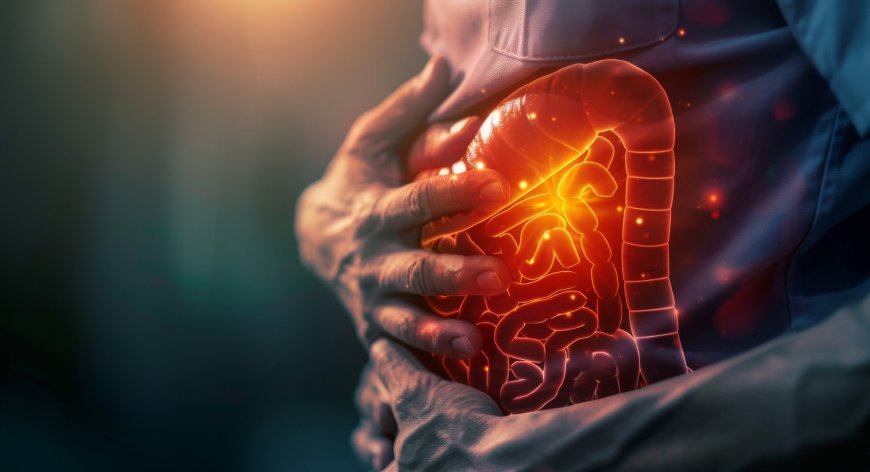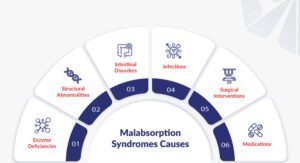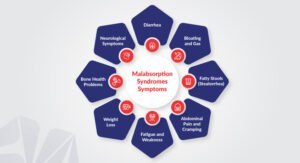
Malabsorption syndromes are a group of disorders in which the intestines cannot adequately absorb certain nutrients, leading to a range of health issues. Understanding the causes, symptoms, and management of these syndromes is crucial for treating patients effectively and improving their quality of life.
Understanding Malabsorption Syndromes
Malabsorption occurs when there is a disruption in the normal digestive process, preventing nutrients from being absorbed into the bloodstream. This can lead to deficiencies in essential vitamins, minerals, proteins, fats, and carbohydrates, impacting various bodily functions and overall health.
Causes of Malabsorption Syndromes
Several factors can contribute to malabsorption syndromes, including:
- Enzyme Deficiencies: Insufficient production of digestive enzymes can hinder the breakdown of food into absorbable components. Conditions like pancreatic insufficiency and lactase deficiency fall into this category.
- Structural Abnormalities: Congenital or acquired structural abnormalities in the intestines can impede nutrient absorption. Examples include short bowel syndrome and diverticulosis.
- Intestinal Disorders: Inflammatory bowel diseases (IBD) such as Crohn’s disease and ulcerative colitis, as well as celiac disease, can damage the intestinal lining, reducing its absorptive capacity.
- Infections: Chronic infections caused by parasites, bacteria, or viruses can lead to malabsorption. The most notable examples are giardiasis and tropical sprue.
- Surgical Interventions: Surgeries that involve the removal of significant portions of the intestine or stomach, such as gastric bypass surgery, can result in malabsorption.
- Medications: Certain medications, including antibiotics, antacids, and chemotherapy drugs, can interfere with nutrient absorption.
Symptoms of Malabsorption Syndromes
The symptoms of malabsorption syndromes can vary widely depending on the specific nutrients that are not being absorbed. Common symptoms include:
- Diarrhea: Frequent loose stools can hinder nutrient absorption further.
- Bloating and Gas: Undigested food ferments in the gut, leading to bloating and gas.
- Fatty Stools (Steatorrhea): Oily, foul-smelling stools indicate fat malabsorption.
- Abdominal Pain and Cramping: Disruption in digestion can cause discomfort.
- Fatigue and Weakness: Nutrient deficiencies can lead to fatigue and a general feeling of weakness.
- Weight Loss: Despite adequate food intake, malabsorption can lead to unintended weight loss.
- Bone Health Problems: Osteoporosis, osteomalacia, and frequent fractures may occur due to inadequate absorption of calcium and vitamin D.
- Neurological Symptoms: Deficiencies in vitamins B12 and E can cause neurological issues, including numbness, tingling, and cognitive impairments.
Diagnosis and Management
Diagnosing malabsorption syndrome often involves a combination of tests, including blood tests to assess nutrient levels, stool analysis, and imaging studies like CT scans or endoscopies.
Treatment focuses on addressing the underlying cause. This may involve dietary modifications, medication, or even surgery in specific cases.
- Dietary Changes: Depending on the cause, eliminating certain foods (like gluten in celiac disease) or lactose restriction may be necessary.
- Nutrient Supplementation: Supplements can help address deficiencies in vitamins, minerals, or essential fats.
- Medications: Medications can help manage digestive diseases or replace pancreatic enzymes.
Conclusion
Malabsorption syndromes present a significant challenge in healthcare due to their diverse causes and wide range of symptoms. Accurate diagnosis and tailored management are essential to improve patient’s quality of life and prevent long-term complications.
At HOSMAT Hospitals, our expert team of gastroenterologists and nutritionists is dedicated to diagnosing and managing malabsorption syndromes with precision and care. If you or a loved one are experiencing symptoms of malabsorption, don’t hesitate to seek professional help. Schedule a consultation with our specialists today for the best Gastrointestinal & General Surgery Treatment in Bangalore and take the first step towards better health and well-being.



